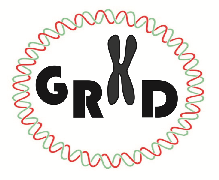Center for Gene Regulation in Health and Disease (GRHD)
Mailing Address
Center for Gene Regulation in Health and Disease (GRHD)
2121 Euclid Avenue, SR 259
Cleveland, OH 44115
Campus Location
2351 Euclid Avenue
Science and Research Building, Room 259
Phone: (216) 687-2516
Fax: (216) 687-5549

Dr. Jingqi Yan

Assistant Professor
Location: SR260
Phone: (216) 687-2411
Fax: (216) 687-6972
| Our research focuses on investigating how autophagy and extracellular vesicles regulate brain synaptic transmission and neural circuits controlling sensory, cognition, and behaviors. Findings from our research are expected to develop novel therapeutic strategies for cognitive and social deficits associated with autism, stroke and other neurological diseases. |
Dr. Zyan Zhang
Research Assistant Professor
Location: SR256
216-687-2411
z.zhang81@csuohio.edu
Lige Leng,*, Ziqi Yuan, Xiao Su, Zhenlei Chen, Shangchen Yang, Kai Zhuang, Hui Lin, Hao Sun, Huifang Li, Jun Xu, Yan J, Zhenyi Chen, Tifei Yuan, Jie Zhang. Hypothalamic Menin orchestrates systemic aging and cognitive decline. PLoS Biol. 2023 Mar 16;21(3):e3002033.
Toh H, Smolentsev A, Sadjadi R, Clegg D, Yan J, Stewart R, Thomson JA, Jiang P. Transcriptomic clock predicts vascular changes of prodromal diabetic retinopathy. Scientific Reports. 2023;13:12968.
Hwang JY#, Monday HR#, Yan J#, Gompers A#, Buxbaum AR, Sawicka KJ, Singer RH, Castillo PE, Zukin RS. CPEB3-dependent increase in GluA2 subunits impairs excitatory transmission onto inhibitory interneurons in a mouse model of fragile X. Cell Rep. 2022 Jun 7;39(10):110853. (# Equal contribution)
Krzyspiak J, Yan J, Ghosh HS, Galinski B, Lituma PJ, Alvina K, Quezada A, Kee S, Gro¿ska-P¿ski M, Tai Y, McDermott K, Gonçalves JT, Zukin RS, Weiser DA, Castillo PE, Khodakhah K, Hébert JM Donor-derived vasculature is required to support neocortical cell grafts after stroke. Stem Cell Res. 2021 Dec 24;59:102642.
Zhang Z, Yan J, Bowman AB, Bryan MR, Singh R, Aschner M. Dysregulation of TFEB contributes to Manganese-induced autophagic failure and mitochondrial dysfunction in astrocytes. Autophagy 019 Nov 24:1-18 (2019). PMID: 31690173.
Yan J, Porch W. M, Brenda Court-Vazquez, Michael V.L. Bennett, and R. Suzanne Zukin. Activation of autophagy rescues synaptic and cognitive deficits in Fragile X mice. Proc Natl Acad Sci, 115 (41) (2018). PMID: 30242133.
Zhang Y#, Kim MS#, Jia B#, Yan J#, et al, Cai D. Hypothalamic stem cells control ageing speed partly through exosomal miRNAs. Nature. 548 (7665): 52-57. (2017) (#, Co-first author) PMID: 28746310.
Kim MS, Yan J, Wu W, Zhang G, Zhang Y, Cai D. Rapid linkage of innate immunological signals to adaptive immunity by the brain-fat axis. Nature Immunology. 16(5): 525-33. (2015) PMID: 25848866
Zhang Y, Liu G, Yan J, Zhang Y, Li B, Cai D. Metabolic learning and memory formation by the brain influence systemic metabolic homeostasis. Nature Communications. 6: 6704. (2015) PMID: 25848677
Yan J, Zhang H, Yin Y, Li J, Tang Y, Purkayastha S, Cai D. Obesity- and aging-induced excess of central transforming growth factor-beta potentiates diabetic development via an RNA stress response. Nature Medicine 20: 1001-1008. (2014) PMID: 25086906
Guo S#, Yan J#, Yang T, Yang X, Bezard E, Zhao B. Protective effects of green tea polyphenols in the 6-OHDA rat model of Parkinson's disease through inhibition of ROS-NO pathway. Biological Psychiatry 62: 1353-1362 (2007). (#, Co-first author) PMID: 17624318.
Complete List of Published Work:
https://www.ncbi.nlm.nih.gov/myncbi/browse/collection/56874837/?sort=date&direction=descending
Mailing Address
Center for Gene Regulation in Health and Disease (GRHD)
2121 Euclid Avenue, SR 259
Cleveland, OH 44115
Campus Location
2351 Euclid Avenue
Science and Research Building, Room 259
Phone: (216) 687-2516
Fax: (216) 687-5549
